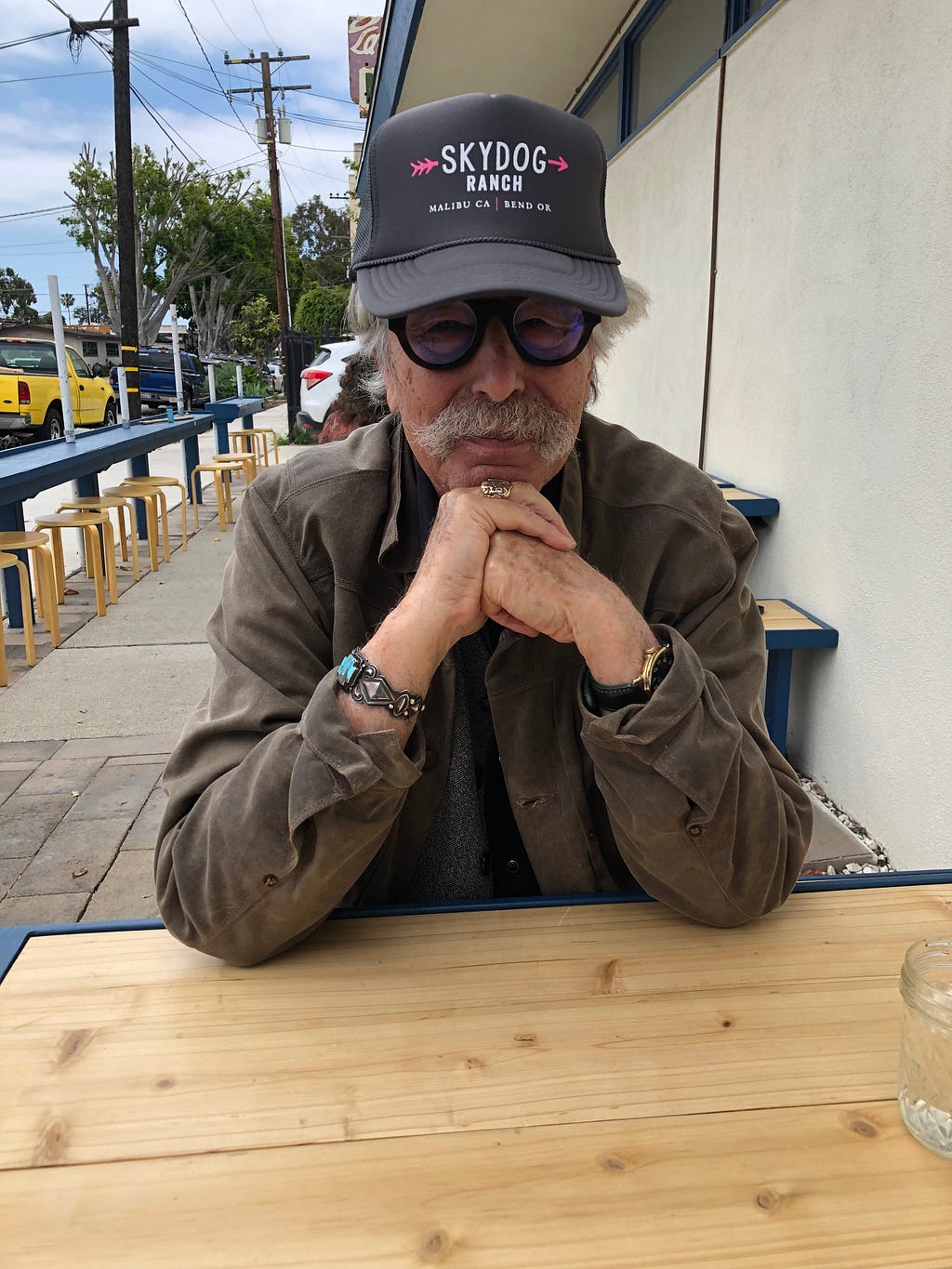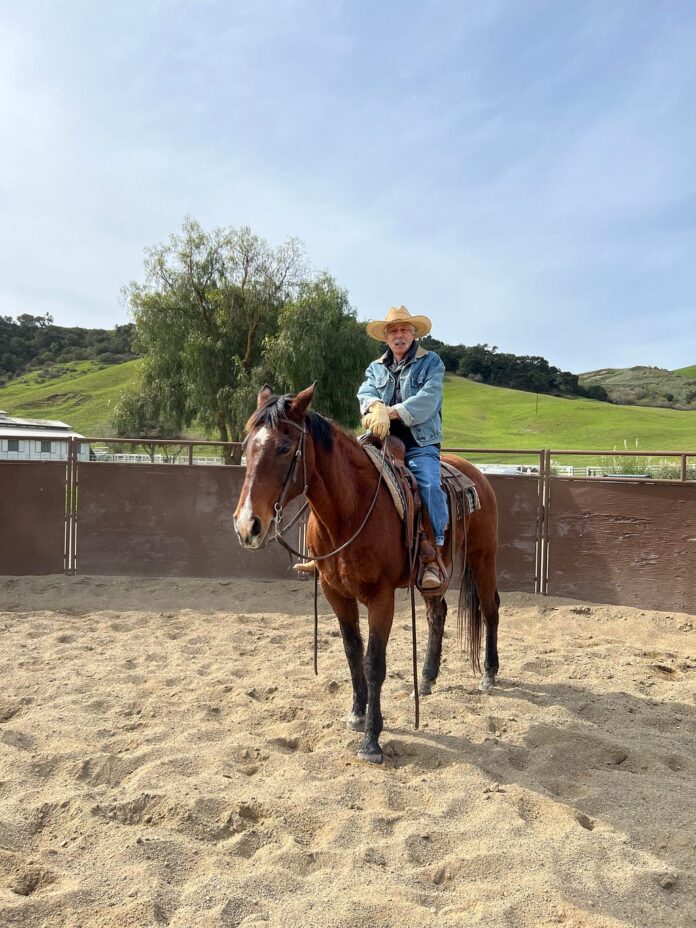How destructive climate change would be. In 1989, then-Senator Al Gore met with Ted Danson and me and told us about the climate threat. He told us 1988 had been the hottest year on record, and asked us to become involved in fighting it. We began working on the issue by: organizing environmental coalitions, making videos and films about the threat, (one with Whoopi Goldberg as Mother Earth), and supporting carbon reduction legislation and candidates.
According to the University of Colorado, “Those who are most affected and have the fewest resources to adapt to climate change are also the least responsible for the greenhouse gas emissions — both globally and within the United States.” Promoting climate justice is an incredibly important environmental responsibility that is slowly becoming more and more recognized. In this interview series, we are talking to leaders who are helping to promote sustainability and climate justice. As part of this series, we had the pleasure of interviewing Robert Sulnick.
Robert H Sulnick is a lifelong environmentalist. He co-founded American Oceans Campaign with Ted Danson and was CEO for ten years. He was the president of No Oil Inc., the environmental director of the Eight Northern Indian Pueblos in New Mexico, and the head of a coalition of environmentalists, The Alliance for Rio Grande Restoration, working to restore the Rio Grande. As an environmental lawyer he represented victims of the Bhopal, India gas disaster, and was among the first to represent residents living around toxic waste dumps.
Thank you so much for doing this with us! Before we dig in, our readers would like to get to know you a bit. Can you tell us a bit about how you grew up?
I grew up on the Southside of Chicago, went to work at age 14, and paid my own way through college, law school, and graduate law school.
Everyone has a cataclysmic moment or marker in their life which propels them to take certain actions, a “why”. What is your why?
As a lawyer representing victims of the Bhopal gas disaster, I discovered Nature has a consciousness and is asking for our help protecting her environment. It changed my life. I resigned my tenure at the law school, started an environmental law practice, became the president of No Oil Inc., and co-founded the American Oceans Campaign (AOC) with Ted Danson.
You are currently leading an organization that is making a difference for our planet. Can you tell us a bit about what you and your organization are trying to change?
Climate change has created an ocean “feed-back” loop that is changing oceans from carbon sinks to carbon emitters. This is destroying ocean ecosystems. This has to change or we will lose the necessary vitality of oceans to survival on Earth.
Can you share the most interesting story that happened to you since you began leading your company or organization?
I went to Alaska to visit ground zero of the Alaskan oil pipeline and meet with the Gwich’in Indians to protect the Arctic National Wildlife Refuge (ANWR) from oil drilling. I was a guest of the oil industry, and meeting the Gwich’in taught me that First Nations are powerful allies in the fight to save our environment.
None of us can be successful without some help along the way. Did you have mentors or cheerleaders who helped you to succeed? Can you tell us a story about their influence?
Guides are essential to successful environmental work. Ted Danson was a guide who handed me a powerful microphone. Toxi Smith, a lawyer who owned Las Vegas Casinos, was a guide who financed my legal work in representing victims of the Bhopal gas disaster. Manuel Hildago, an East Los Angeles lawyer, was a guide who helped me represent the victims of the Casmalia toxic waste dump.
I was giving a fundraising speech for No Oil, in its fight to stop Occidental Petroleum from developing 60–100 oil wells in Pacific Palisades, California. After the speech, a tall thin man with a large head of hair came up to me, handed me a large check, and said he would like to help. When colleagues asked if I knew who that was, I said “No, but the name on the check is Ted Danson”. They asked if I had ever heard of “Cheers”? My reply was, “No is that a bar”? Ted and I went on to co-found AOC.
Thank you for that. Let’s now move to the central part of our discussion. Let’s start with a basic definition of terms so that everyone is on the same page. What does climate justice mean to you? How do we operationalize it?
“Climate justice” refers to the fact that much of our industrial base exists near lower-income communities creating a disparity of exposures to environmental pollutants and toxicants. In the 21st Century, because global climate change is ubiquitous, this urgently means there needs to be more immediate assistance, both economic and social, to low-income communizes impacted and destroyed by climate change.
However, in the 21st Century, the definition needs to be expanded. Climate change is global. Its resulting storms, droughts, wildfires, and sea level rise are impacting all of us regardless of economic class. Therefore, “environmental justice” now means stopping fossil fuel emissions and converting to a green energy economy.
Science is telling us that we have 7–10 years to make critical decisions about climate change. What are three things you or your organization are doing to help?
First, point out that this is incorrect. Science has confirmed that the world has gone over the 3.5c (2f) climate “tipping point” causing irreversible environmental damage. Indeed, a community in southern Iran last December reached an unlivable temperature of 180 f ( 82.2 c).
Second, educate the public that national legislation is needed to make the transition to a green economy, and therefore working on carbon reduction legislation.
Third, organizing environmental coalitions to promote GHG reduction measures.
Are there three things the community, society, or politicians can do to help you in your mission?
First, the community can understand there were 123 climate deniers in the 118th Congress, and that 18 more have been seated in the 119th Congress; and vote the environment.
Second, society must understand that climate change is a global destructive phenomenon and support the world-wide reduction of fossil fuel emissions.
Third, Politicians must begin to put the environment, which all of us depend on, before their political careers and create and support legislation reducing fossil fuel emissions, and creating a green economy.
How would you articulate how a business can become more profitable by being more sustainable and more environmentally conscious? Can you share a story or example?
By agreeing to disagree with the environmental community and working co-operatively on sustainable, profitable GHG reduction measures. For example, we worked with the oil industry to create low-sulfur diesel fuels that reduced sulfur emissions from diesel engines from 50 ppm to 15 ppm, increasing their profits by ensuring the purchase of more diesel fuels. Another example was working with the oil industry to create used motor oil recycling in California, increasing the profits of motor oil recycling companies. A third example was working with hotels to increase their sustainability measures, that reduced their elect city bills measurably.

What are your “5 things I wish someone told me when I first started promoting sustainability and climate justice” and why?
1 . How destructive climate change would be. In 1989, then-Senator Al Gore met with Ted Danson and me and told us about the climate threat. He told us 1988 had been the hottest year on record, and asked us to become involved in fighting it. We began working on the issue by: organizing environmental coalitions, making videos and films about the threat, (one with Whoopi Goldberg as Mother Earth), and supporting carbon reduction legislation and candidates.
2 . How strong climate denial would be. Climate denial is well funded by the oil industry; people believe the storms and fires et al are “natural”. In debates, climate deniers say that the CO2 in the environment, and a warming climate are natural and do not need to be reduced. This is even though global climate scientists have issued a “Red Alert” for the planet due to fossil fuel emissions causing global warming.
3 . How important social media would be in fighting global warming. In 2024 climate change was the 13th priority of voters. Coupled with more than eight in ten U.S. adults (86%) getting news from a smartphone, computer, or tablet, and CNN (down 39%) and MSNBC (down 52%) seeing their audiences collapse to record lows, climate education needs to be on social media.
4. That environmentalists would be suspicious of “agreeing to disagree” and work with industry when private sector technologies can positively impact/reduce climate change.
5 . That climate change was causing “feedback loops” in both oceans and forests changing oceans and forests from carbon sinks to carbon emitters, exacerbating climate change. Climate change is hard for the public to grasp, and knowing this would have helped me explain it to the public. Without public pressure, neither national nor global politics will address the issue of fossil fuels causing global warming.
Is there a person in the world, or in the US with whom you would like to have a private breakfast or lunch with, and why? He or she might just see this, especially if we tag them. 🙂
Greta Thunberg, because her generation is inheriting this existential threat.
How can our readers continue to follow your work online?
https://www.linkedin.com/in/robert-sulnick-5796962a/; Noozhawk/ Robert Sulnick, https:/www.noozhawk.com; Santa Barbara Independent/ Clear the air, https://www.independnet.com; Substack/ Clear the Air With Bob Sulnick,.substack.com/publish/home domain: Spoutible, Sulnick1 https://spoutible.com
This was very meaningful, thank you so much. We wish you only continued success on your great work!
How Artist & Activist Robert Sulnick Is Helping to Promote Sustainability and Climate Justice was originally published in Authority Magazine on Medium, where people are continuing the conversation by highlighting and responding to this story.


